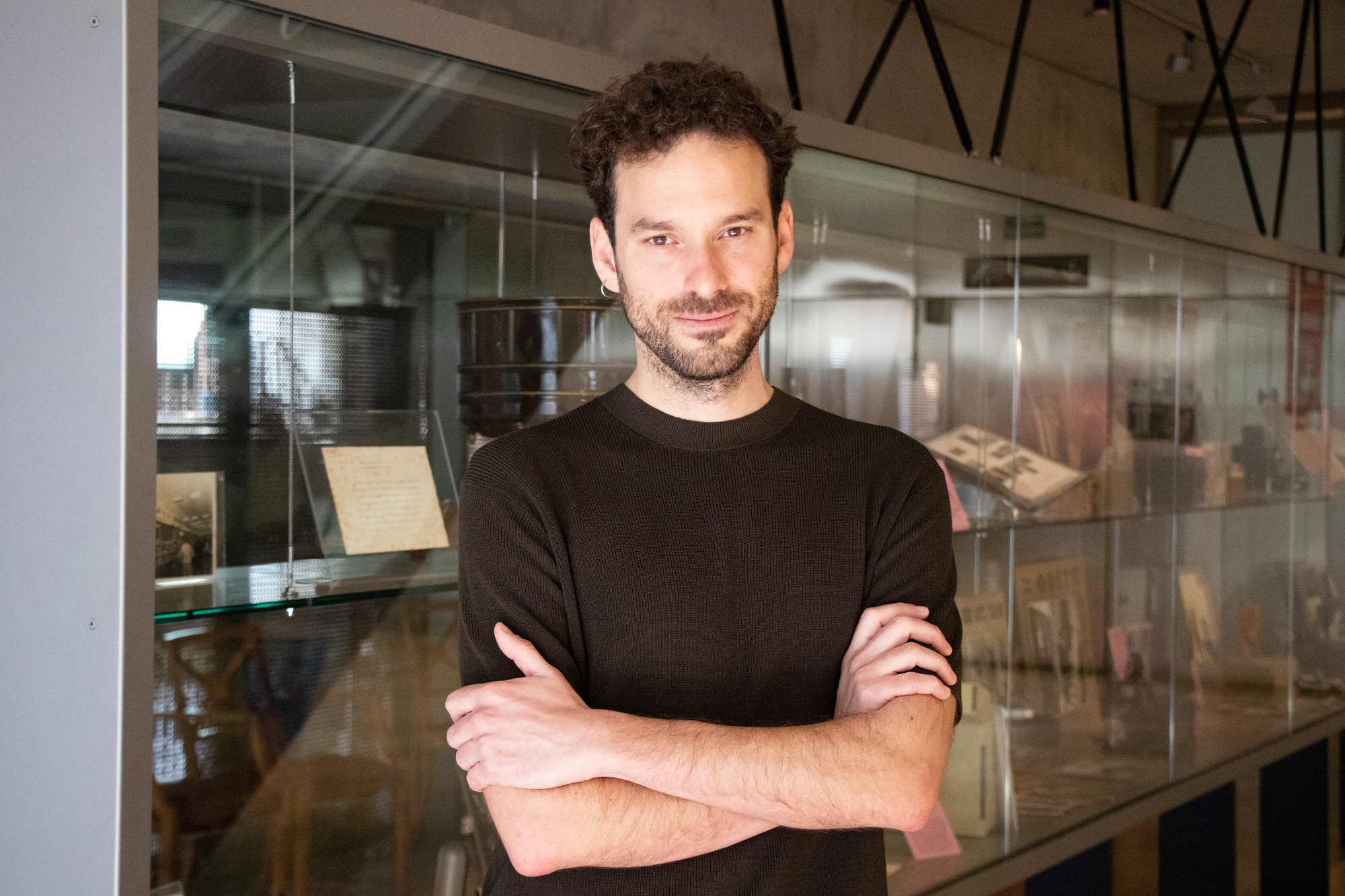Pablo La Parra Pérez, new director of the Filmoteca de Catalunya
09/05/2024

La Parra will take office on 1 July 2024 for a period of 4 years, extendable up to 8 years. The winning project of the international competition launched in January of this year emphasises the transformation of the Filmoteca into a flexible institution capable of facing the responsibility of preserving and disseminating film heritage at a time of profound changes brought about by digitisation.
Pablo La Parra Pérez, who holds a degree in Art History from the University of Valencia and a PhD in Film and Cultural Studies from New York University, has been chosen as the new director of the Filmoteca de Catalunya for the next four years. This decision closes the international public competition initiated this year.
The competition's selection committee, which evaluated 27 candidates, comprised Judith Colell, president of the Catalan Film Academy, screenwriter and film producer; Frédéric Maire, director of the Cinémathèque Suisse; Josep Serra, director of the National Art Museum of Catalonia (MNAC), and on behalf of the Ministry of Culture, Jordi Foz, Secretary General, and Judit Sans, manager of the Catalan Institute for Cultural Companies (ICEC).
The committee particularly valued La Parra's career in terms of his experience in the management and leadership of teams and entities linked to film and audiovisual heritage, as well as the ambition of the project he presented, in which several objectives converge. Among them was the desire to adopt an innovative approach to the facilities' operation, to see the Filmoteca as an inherently transitional institution, capable of answering the call to preserve and transmit film heritage based on flexibility, experimentation and constant transformation. Also included were the objective of promoting research and advanced knowledge production in collaboration with Catalan and international research, development and innovation agents, and the challenge of ensuring an expansion of the digital preservation system that is sustainable, both institutionally and environmentally, incorporating mechanisms for critical reflection on digitisation programmes.
Likewise, La Parra's project aims to strengthen the preservation and dissemination of Catalan cinema and implement strategies that contribute to the interconnection of the Filmoteca's heritage collections. It focuses on opening them up and making them accessible to all types of audience, reinforcing the dissemination and mediation programmes from a responsible social vision that permeates all the centre's areas of activity. Finally, the committee considered La Parra to be the ideal candidate to complete a process of great historical relevance for the institution: the approval of the draft bill for the Filmoteca, which will consolidate the centre as a national facility dedicated to the conservation, preservation and dissemination of film heritage and culture at a time of profound changes in these areas.
La Parra, who will take office on 1 July, takes over from Esteve Riambau, who has been at the helm of the institution since 2010.
The new director
Pablo La Parra Pérez holds a PhD cum laude in Film and Cultural Studies (Department of Spanish and Portuguese Languages and Literatures, New York University, 2018) and a degree (extraordinary award) in Art History from the University of Valencia. He also holds an official master's degree in Comparative Studies in Literature, Art and Thought from Pompeu Fabra University.
Since 2018, he has been a teacher at Elías Querejeta Zine Eskola, in the Basque Country, as well as head of its Research Department. His tasks included conceptualisation of the Department, direction and academic coordination of research projects, budget management, promotion of national and international collaboration agreements and fundraising, and institutional representation in professional and academic forums. La Parra has also been scientific adviser for the magazine ZINE: Film Research Series, Between 2018 and 2023 he held positions of responsibility at the San Sebastián International Film Festival, as coordinator of the cross-functional area Thought and Discussion, and as director of the Zinemaldia 70: All Possible Stories project, which has led to the search for and preservation and accessibility of the festival's archive.
He also has a proven track record as director and curator of public programmes and exhibitions in different congresses, conferences and seminars, and is the author of multiple publications.

